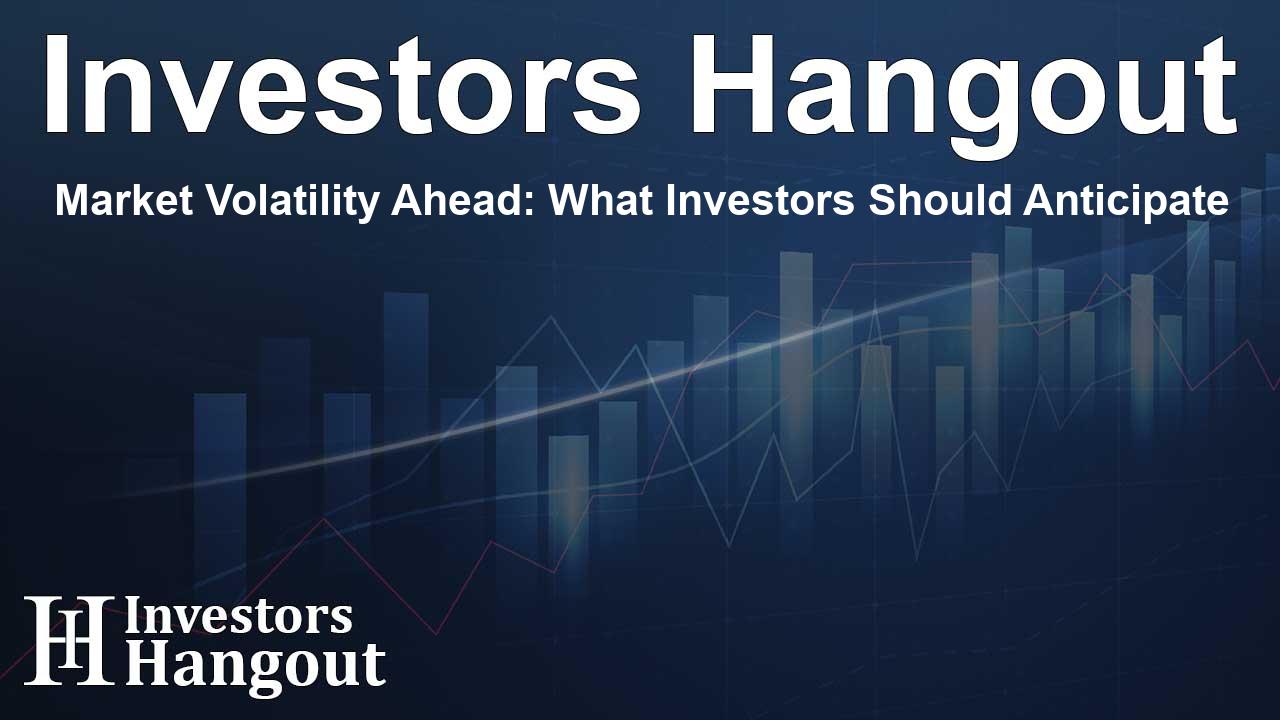Market Volatility Ahead: What Investors Should Anticipate

Understanding the Current Market Landscape
In the intricate world of finance, markets are often swayed by unexpected developments, and the present landscape is no exception. Recently, there have been indications that U.S. financial markets are poised for heightened sensitivity to economic shocks in the near future.
The Impact of Economic Policies
As Donald Trump gets ready to take on another term as U.S. president, it's essential for investors to prepare for fluctuations driven by potential policy changes. Economic data surprises, within Treasury yields particularly, have been registered at notable levels. According to recent analyses, the 10-year yield's reaction to inflation and economic activity data has reached a level not seen in over two decades. This remains true despite a backdrop of declining inflation rates and easing growth fears.
Volatile Nature of Treasuries
Treasuries have historically illustrated this heightened volatility. While inflation-related impacts on stocks have decreased, stocks' reactions to economic growth surprises are resurging. Although the prevailing sentiment suggests improvable market stability, various indicators demonstrate that the markets are in a fragile state.
Market Dynamics and Future Outlook
The current situation reveals that U.S. equities are lingering at elevated levels, representing an immense portion of global market capitalization. Despite efforts by the Federal Reserve to decrease interest rates, market responses have been counterintuitive, observing an increase in 10-year Treasury yield.
What Does This Mean for Investors?
This scenario raises pivotal questions about the potential for market corrections. It is prudent to consider the substantial intra-day trading volatility and the potential for abrupt market fluctuations as investors navigate an environment influenced by policy uncertainties.
Historical Context and Repercussions
Looking back, a clear relationship between macroeconomic stability and market volatility has been established. With major uncertainties surrounding trade policies and Federal Reserve responses, concerns have emerged regarding the susceptibility of markets to significant shocks. Recent surveys among fund managers indicate that fears surrounding global trade dynamics are at an all-time high.
Anticipating Volatility
As stated by industry experts, numerous forthcoming shifts in policy have spurred expectations for volatility. The inaugural year of Trump’s previous term yielded positive outcomes for the stock market, but conditions today are markedly different, characterized by heightened market sensitivity. Thus, even minor economic surprises could prompt significant reactions in market behavior.
Navigating Uncertainty in 2025
In the forthcoming period, investors are advised to exercise caution as they encounter waves of volatility fueled by market speculation and unpredictable property shifts. Maintaining a watchful eye will be key for those looking to navigate this uncertain path.
The Role of Investor Sentiment
As time progresses, it’s possible that investors may gradually overlook certain impulsive reactions from public figures in the political landscape, particularly if economic fundamentals remain solid. However, until indications of stability manifest, prudent vigilance is necessary.
Ultimately, as described, the synergy of stretched markets and a fluctuating political atmosphere is likely to engender a tumultuous 2025 for investors. While opportunities may abound, so will risks, underscoring the importance of strategic decision-making in this unpredictable environment.
Frequently Asked Questions
What factors contribute to market volatility?
Market volatility can stem from economic data surprises, shifts in investor sentiment, and unexpected government policies impacting financial markets.
How should investors prepare for potential volatility?
Investors should stay informed about economic trends, policy changes, and remain agile in their investment strategies to navigate potential market shifts.
What is the significance of interest rate changes?
Interest rate changes by the Federal Reserve can significantly influence both borrowing costs and investment decisions, impacting the overall market environment.
What are some indicators of market health?
Key indicators include equity valuations, market sentiment, interest rates, and macroeconomic indicators such as inflation and employment rates.
How can history inform current market strategies?
Historical trends provide valuable insights into market reactions to similar economic circumstances, helping investors make informed decisions amidst uncertainty.
About Investors Hangout
Investors Hangout is a leading online stock forum for financial discussion and learning, offering a wide range of free tools and resources. It draws in traders of all levels, who exchange market knowledge, investigate trading tactics, and keep an eye on industry developments in real time. Featuring financial articles, stock message boards, quotes, charts, company profiles, and live news updates. Through cooperative learning and a wealth of informational resources, it helps users from novices creating their first portfolios to experts honing their techniques. Join Investors Hangout today: https://investorshangout.com/
Disclaimer: The content of this article is solely for general informational purposes only; it does not represent legal, financial, or investment advice. Investors Hangout does not offer financial advice; the author is not a licensed financial advisor. Consult a qualified advisor before making any financial or investment decisions based on this article. The author's interpretation of publicly available data shapes the opinions presented here; as a result, they should not be taken as advice to purchase, sell, or hold any securities mentioned or any other investments. The author does not guarantee the accuracy, completeness, or timeliness of any material, providing it "as is." Information and market conditions may change; past performance is not indicative of future outcomes. If any of the material offered here is inaccurate, please contact us for corrections.